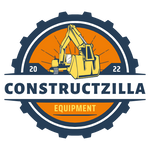Electric vs LPG Forklifts: Which is the Better Choice for Your Business?
Introduction:
In the dynamic world of material handling, choosing the right forklift can significantly impact your business's efficiency and cost-effectiveness. Two popular options in the market are electric and LPG (Liquefied Petroleum Gas) forklifts. This article delves into the pros and cons of each, helping you make an informed decision.
Electric Forklifts: Clean and Cost-Efficient

Advantages:
- Environmental Friendliness: Electric forklifts produce zero emissions, making them ideal for indoor use and companies focusing on reducing their carbon footprint.
- Lower Operating Costs: Although the initial investment might be higher, electric forklifts have lower running costs. They require less maintenance due to fewer moving parts and no need for fuel storage.
- Quiet Operation: These forklifts operate quietly, reducing noise pollution and enhancing workplace communication.
Disadvantages:
- Higher Initial Investment: The upfront cost for electric forklifts, including charging stations, can be higher than LPG models.
- Charging Time: Battery charging and swapping can be time-consuming, potentially impacting productivity.
- Limited Suitability for Outdoor Use: Electric forklifts are less suited for rough terrain or wet conditions.
LPG Forklifts: Powerful and Flexible

Advantages:
- Consistent Power Delivery: LPG forklifts maintain consistent power levels throughout their use, unlike electric models that may experience power decrease as the battery drains.
- Versatility: Suitable for both indoor and outdoor use, LPG forklifts offer flexibility in various working conditions.
- Quick Refueling: Refueling an LPG forklift is faster than recharging an electric counterpart, minimizing downtime.
Disadvantages:
- Emissions: LPG forklifts produce emissions, requiring adequate ventilation when used indoors.
- Fuel Storage: LPG requires storage space for fuel tanks, which could be a constraint in limited spaces.
- Noise and Maintenance: They are noisier and require more maintenance than electric models, including regular fuel-related servicing.
Cost Comparison: The total cost of ownership should be considered when comparing electric and LPG forklifts. While electric models have higher upfront costs, their lower operating expenses can make them more economical in the long run.
Environmental Impact: Electric forklifts are a greener choice, aligning with environmental regulations and sustainability goals. LPG models, though cleaner than diesel, still have an environmental footprint.
Conclusion: The choice between electric and LPG forklifts depends on your specific needs. Electric models are ideal for indoor use and businesses prioritizing environmental sustainability and lower operational costs. LPG forklifts offer flexibility and consistent power for diverse environments. Assess your business requirements, budget, and environmental goals to choose the right forklift.

